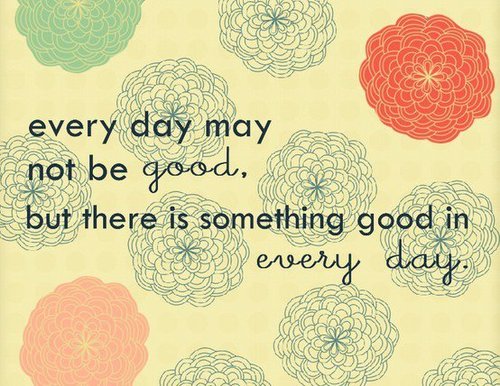(Written by Emmy Jewell)
Positivity is a strange concept.
It can be elusive and hard to find, but it has the power to move mountains. The best part about positivity is that it is easy to find if you know where to look for it.
At this point it is a broken record, all of the quotes about happiness, about how confidence comes from within, and the concept that your thoughts define you. Though we hear them all the time, we rarely implement these sayings and adopt them as personal mottos. That being said, these clichés dictate my mindset.
I am a 20-year-old college girl navigating life and homework one day at a time. However, in addition to the constant stresses of being a college student, I work to support myself. When I am at school, I am completely self-sufficient, paying for everything that I need from books to shampoo.
I come from a single parent household that resembles the Gilmore Girls (although substitute their various gentleman callers for pets). As a result, I work as many hours as I possibly can.
I often have peers ask “Why do you work so much?” or “How do you get it all done?” and I occasionally hear statements such as, “I could never do what you do” or even, “You seem so okay with everything you have to do.” When sharing my story, people are most surprised by my lack of negativity regarding my situation, but this is purposeful.
When I was little, my dad left my mom and me, and was re-married roughly a year later.
Unfortunately, around the same time, my grandmother decided to walk away from my mom and me as well. My mom decided to move us to Minnesota so I could be around my aunt, uncle, and cousins, who my grandmother had cut off as well.
My relationship with my dad growing up was somewhat nonexistent, which was partially his fault, partially because my step-mother resented my existence, and partially because he moved back home to England.
Summers spent with him and my step-mom and half sister were generally pretty miserable. My dad was always preoccupied with his job and my step-mom was constantly criticizing how my mother (who I was, and still am, fiercely defensive of) was raising me, combined with some additional commentary on my looks or how my presence was an inconvenience. Needless to say, I preferred my mom, and even to this day she remains my favorite person.
Following my dad and step-mom’s divorce, my dad and I have attempted to repair some of the broken bridges. But this has presented challenges of its own.
So on any given day, you can assume I am rushing off to work, or returning home from work to do homework, or balancing relationships between my dad and sister, or missing my mom, all in the state where it all began. As overwhelming as it can be, especially now that I see my dad more often, I rarely believe that my life warrants the comments I get from my peers.
Though I have moments of feeling down, they are not frequent.
This is because while growing up, my mom stressed that dwelling on the negative things will only make them seem like bigger problems than they are. She instilled in me the importance of positivity.
My mom and I are both Christians and she often quotes Philippians 4:8 which states, “Finally, brothers and sisters, whatever is true, whatever is noble, whatever is right, whatever is pure, whatever is lovely, whatever is admirable—if anything is excellent or praiseworthy—think about such things.”
There are many bible verses that stress that what you think is what you become. If you seek out the bright side or silver linings in any negative situation, you start to change your outlook on life. Do this enough, and soon you’ll find that it becomes easier to see the good things that are abundant in your life.
Even while writing this, I recognize that my life could be so much worse. I have gained so much from my life experiences, including an amazing relationship with my mom, a strong work ethic, and an understanding that life is too short to be unhappy.
Changing your mindset can be incredibly difficult, because we seem to be hardwired to have pity parties on a daily basis. But you have to start with reminding yourself that there is nothing that you can’t handle.
We are all a lot stronger than we think, we just have to tap into more confidence. Positivity comes from within and you can’t wait for others to bring happiness into your life.
In my opinion, the best way to do this is to start counting your blessings everyday. Having a good hair day? Getting a college education? Having someone in your life who cares about your well-being? Watching an episode of your favorite show on Netflix? These are all things to be happy about. Much like every cliché in the book, the small things are just as meaningful and important as the larger scale things.
Instead of focusing on what is going wrong in your life, think about positive outcomes for the situation you are dealing with. By dwelling on the hardship of it all you allow the situation to get the better of you. One of the best quotes I have found is by Henry Ford, who says, “Whether you think you can, or you can’t – either way you’re right.”
Believing in yourself and thinking positively can be life changing. Sooner or later that positivity that has the ability to move mountains translates into the ability for you to move mountains, or at the very least face any obstacle that comes your way.







